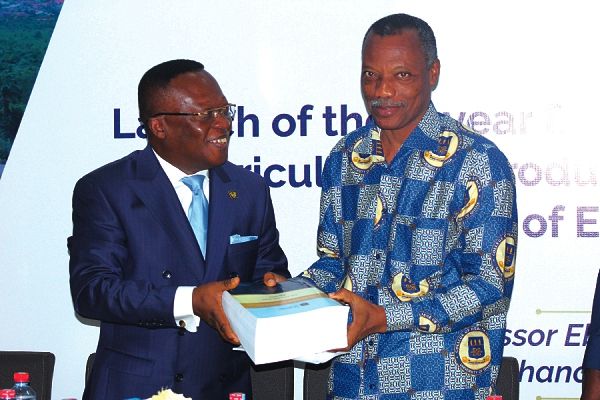
University of Ghana introduces B.Ed from October this year
The University of Ghana (UG) has introduced the Bachelor of Education Curriculum (B.Ed) into its course programming.
The new programme is an initiative by the university to contribute to strengthening teacher trainee education in the country and takes effect from October this year.
The move is also part of the reforms introduced by the government to improve the educational sector.
Additionally, the university has also welcomed six new affiliate colleges of education, namely the Accra College of Education, the Enchi College of Education, the Evangelical Presbyterian College of Education (Amedzofe), Gbewaa College of Education (Pusiga), the Mount Mary College of Education (Somanya) and the Peki College of Education into its fold to produce university graduates of high standards for the education service and sport industry.
Event
The Vice Chancellor of the University of Ghana, Professor Ebenezer Oduro Owusu, made this known in a speech read on his behalf at the launch of the Bachelor of Education Curriculum and Introduction of the six affiliate colleges of education in Accra last Friday.
He said the creation of the new curriculum would advance the country’s quest to produce more teachers of quality, adding that “over the past few years, poor performances by students has been attributed to teacher education training programmes having outlived their usefulness and the lack of needed educational reforms in line with modern trends of knowledge and skills acquisition”.
According to Prof. Owusu, the new programme would help teacher trainees to become well positioned and skilled with regards to classroom management.
He said the curriculum seeks to transform Ghanaian schools into stimulating environments that gave all learners the opportunity to realise their full potential.
Furthermore, he said the programme would help teachers to demonstrate competencies required in the 21st century classroom and to become capable of inspiring children to learn.
Curriculum
The Chief Technical Advisor, Transforming Teacher Education and Learning in Ghana (T-TEL), Mr Akwasi Addae-Boahene, said the new curriculum would enhance the competencies of teachers as it would ensure equal access to quality pre -tertiary training education at all levels.
He said T-TEL was introduced into the education system in the year 2014 and was designed to transform pre-teacher education, as well as support the regulatory institutions to formulate policies and guidelines for the implementation of the teacher education reforms.
Mr Addae-Boahene said T-TEL supported the National Accreditation Board (NAB) in the development of a National Assessment Strategy that monitored and assessed the degree of consistency of teacher trainees across the colleges of education and universities in the country.
Commendation
The Acting Provost of the University of Ghana College of Education, Prof. Michael Tagoe, commended the university for introducing a Bachelor of Education curriculum, saying, “implementation of the Bachelor of Education Curriculum was welcoming news as it would assist the college to understand problems in the education sector better”.
